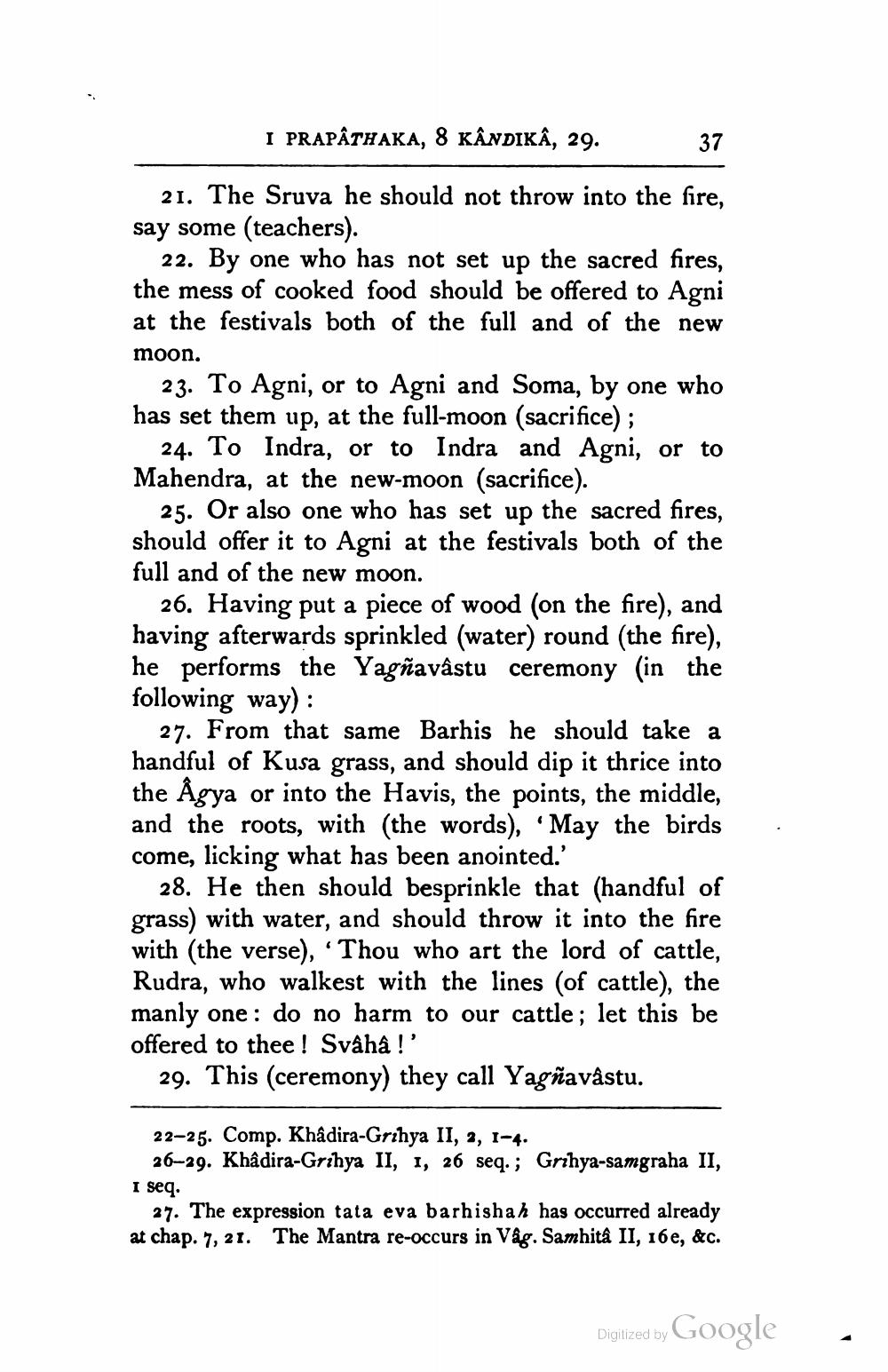________________
I PRAPATHAKA, 8 KÂNDIKA, 29.
37
21. The Sruva he should not throw into the fire, say some (teachers).
22. By one who has not set up the sacred fires, the mess of cooked food should be offered to Agni at the festivals both of the full and of the new
moon.
23. To Agni, or to Agni and Soma, by one who has set them up, at the full-moon (sacrifice);
24. To Indra, or to Indra and Agni, or to Mahendra, at the new-moon (sacrifice).
25. Or also one who has set up the sacred fires, should offer it to Agni at the festivals both of the full and of the new moon.
26. Having put a piece of wood (on the fire), and having afterwards sprinkled (water) round (the fire), he performs the Yagñavâstu ceremony (in the following way):
27. From that same Barhis he should take a handful of Kusa grass, and should dip it thrice into the Agya or into the Havis, the points, the middle, and the roots, with (the words), 'May the birds come, licking what has been anointed.'
28. He then should besprinkle that (handful of grass) with water, and should throw it into the fire with (the verse), 'Thou who art the lord of cattle, Rudra, who walkest with the lines (of cattle), the manly one: do no harm to our cattle; let this be offered to thee! Svâhâ!'
29. This (ceremony) they call Yagñavâstu.
22-25. Comp. Khâdira-Grzhya II, 2, 1−4.
26-29. Khâdira-Grihya II, 1, 26 seq.; Grihya-samgraha II, I seq.
27. The expression tata eva barhishah has occurred already at chap. 7, 21. The Mantra re-occurs in Vâg. Samhitâ II, 16e, &c.
Digitized by
Google




